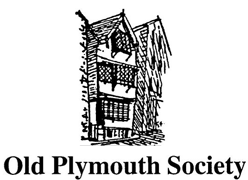by Nicholas Casley
Published May 2012
The citizens of Plymouth are very lucky to have in their central reference library many of the calendars of state papers published by the Public Records Office. I have been slowly and systematically working my way through them, finding innumerable references in the medieval period to Plymouth and its hinterland. One such brief reference caught my eye in particular, not only because it relayed information which I had not come across before in secondary sources, but also because it told a very human story as opposed to the dry listings of manorial ownerships that other inquisitions may contain.(1)
The inquisition bears no date, but the palaeographical and other evidence places it in the latter part of the reign of Henry III. This in itself is of interest for it was during this time that Plymouth or Sutton, as it was then known received its first market charter, and its first true signs of urban status. The Prior of Plympton had intended to found a new town on his land by Sutton Harbour alongside the ‘Old Town’ of the Valletorts probably in response to the apparent success of the market and borough that the Earl of Devon had founded not long before at Plympton.
In the events that I now relate I have modernised and standardised the names for ease of reference. The scene is a house in ‘Sutton’ where Rose Buckland a tavern. Only the barest of detail is given so we do not know where in Sutton the property was located. There is no mention of Rose having a husband but she does have a son called Alard. He was much more than a mere boy, for he not only expelled from the tavern one of the characters in the story, but was also the man who another whilst defending his mother’s home.
The man he killed was Nicholas Cock. The family name in this document is variously spelt either Kouke or Koc. They may have been the ancestors of the Cocks of Plymouth who played a prominent role in the from the time that municipal records survive in the late 15th century through to the reign of William III at the end of the 17th. Whatever, it is his parents, Thomas and Mabel Cock, who are the source of the initial dispute, for Thomas was accused of “frequenting lecherously” another visitor of the tavern, Margery Totwell. It is possible that her surname has links with nearby Tothill.
The earliest reference to Tothill would appear to be at the time of the Civil War(2) , but ‘Simon Carswell’s Book’ has a reference dated 1502-03 to a place called Totwell in the vicinity of Plymouth where rents were owed to the Dean and Chapter of Exeter Cathedral.(3)
It does not take much knowledge of human nature to see how Thomas Cock’s lechery of Margery Totwell in front of his wife led to a quarrel and then a fight between the said Margery and Thomas’s wife, Mabel. This is where the unfortunate Alard enters the scene, for he ejects Mabel from the tavern. Mabel, no doubt feeling deeply humiliated in front of everybody by her husband’s actions as well as by the ejection, goes angrily home and informs her son Nicholas. He then takes it upon himself to go to the tavern to assault Mabel. However, Alard stands in his way and ejects him just as he had previously thrown out his mother from the tavern. It should be noted that there is no further mention of the husband, Thomas, so it is unknown what further part, if any, he had to play.
All of this incident so far occurred during daylight hours, for the inquisition relates that in the evening Nicholas Cock with his brother William, armed with bows and arrows, attacked the home of Rose Buckland and her son, Alard. Nicholas managed to break down the door to the property and entered, but it was then that Alard fatally wounded Nicholas with an arrow. The inquisition concludes that Alard killed Nicholas in self-defence, “by misadventure, not feloniously”. But William, Nicholas’s brother appealed that Alard should not escape completely from his actions, and the court ruled that Alard be outlawed in the county of Devon. This would possibly have meant that Alard would have had to leave the county.
Thus ends the details of this incident. Whilst not in itself being of great import in the development of the medieval borough, I hope you will agree that the story adds a human dimension to Plymouth’s earliest history, a dimension that is all too lacking through the dearth of documents of the period. And I suppose it is painfully reassuring to know that some aspects of human nature have changed very little between the 13″ and the 21st centuries!
(1) The inquisition is number 2168 in the Calendar of Inquisitions Miscellaneous: Vol. I – Henry III/Edward I (1916, 579).
(2)The English Place-Name Society’s first volume of The Place-Names of Devon (1931, 234) has the earliest date as 1641, whilst Worth’s Calendar of Plymouth Municipal Records (1893, 159) includes the name in an extract from the borough accounts of 1642-3.
(3) R.N. Worth, Calendar of Plymouth Municipal Records (1893, 79).
